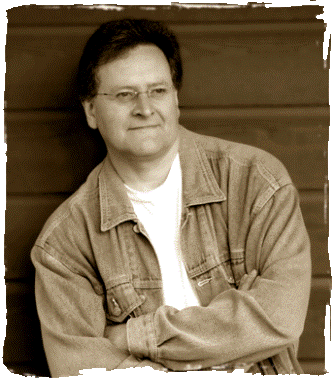Allie Bennett
 Allie Bennett has come full circle. It’s been nine years since the Nova Scotia fiddler released his first album, It’s About Time, and his most recent one – issued a few months ago in the Fall of 2013 – is titled Full Circle. Bennett used to do some singing back when he played coffee houses and small concert halls in the mid-1970s, but since then he’s made his mark more as a sideman working with other artists. With Full Circle, after others requested that he sing again, Bennett decided to add vocals back into the mix again.
Allie Bennett has come full circle. It’s been nine years since the Nova Scotia fiddler released his first album, It’s About Time, and his most recent one – issued a few months ago in the Fall of 2013 – is titled Full Circle. Bennett used to do some singing back when he played coffee houses and small concert halls in the mid-1970s, but since then he’s made his mark more as a sideman working with other artists. With Full Circle, after others requested that he sing again, Bennett decided to add vocals back into the mix again.
Sing though he may, Bennett is probably one of the best-known fiddlers Nova Scotia has produced. He is a musician’s musician. On Canada’s East Coast, Bennett has accompanied the who’s who of top talent, playing fiddle in concerts with John Allan Cameron, Rita MacNeil, Natalie MacMaster, Bruce Guthro and Dave Gunning. Beyond that as a bass player and guitarist, he’s worked with Stan Rogers, Ashley MacIsaac, Murray McLauchlan, The Rankin Family, the Barra MacNeils and many more. All told, Bennett’s played on over 125 recordings.
Bennett currently lives in Cole Harbour, Nova Scotia, but he hails from Sydney Mines in Cape Breton. If you dig back far enough into Bennett’s roots, the Celt emerges: his maternal great-grandmother was a MacTaggart; his paternal grandmother was a Boyd, and she claims some Morrison’s on that side as well. Make no mistake though, Bennett’s fiddling is as Gaelic as it comes. “I mostly play the Cape Breton Scottish style, although I’m constantly adding to my Irish repertoire as well,” Bennett says.
Not surprisingly, he names as his main influence Winston “Scotty” Fitzgerald, who is often cited as a pioneer in recorded performances of Cape Breton fiddling. And like many, it was a 1972 documentary titled The Vanishing Cape Breton Fiddler produced by Ron MacInnis that made Bennett pick up the instrument. That same film, which took as its main premise that traditional Cape Breton fiddling was in a disastrous state of decline, also led to the formation of the Cape Breton Fiddlers’ Association and resulted in the first Fiddlers Festival in Glendale in Cape Breton in 1973. “I attended that event,” Bennett recalls. “And that was the real turning point in my decision to learn how to play fiddle.”
Bennett, 57, says one major Celtic influence in his style comes from his association with John Allan Cameron. According to Bennett, Cameron presented Celtic music to his audiences long before it was popular, leading the Canadian press to dub him the “Godfather of Celtic Music in Canada.” Speaking of Cameron, at one point Bennett did a four-month gig in 1981, playing bass for the legendary singer-songwriter, Stan Rogers.
Rogers offered Bennett a job, but Bennett turned him down, deciding to stay with Cameron. “Stan said I was too loyal for my own good, which proved prophetic in later years,” Bennett says.
When it comes to composition, Bennett works to create an original a melody as possible. He points out that’s not so easy given the tens of thousands of tunes that have been written or passed down over the years. Musically, he aims to have the different parts of the tune match up as much as possible and looks for simplicity but high quality at the same time. “The late John Morris Rankin was a master at that,” Bennett observes.
“It’s been a wonderful experience to be involved with Celtic music over the years, particularly with fiddling,” Bennett declares. “Having had the opportunity to get to know and play with some of the fiddlers who were my early influences and then over the years teaching, mentoring and developing friendships with many of the younger fiddlers, I’ve been very fortunate to have been a part of both the revival and continuing popularity of this form of Celtic music.”




















Hello Allie,
I was wondering if you offer private lessons at this time. My sons age 12 & 10 have taken several years of fiddle lessons from a wonderful local teacher who isn’t teaching anymore. It’s about a year since they have had lessons and I would very much like to get them back to consistent lessons. If you are interested, please reach out by phone 902 293-1720 or email mjaneyeo@gmail.com . I can send along a video of if a tune. We live in Porters Lake and my boys play Basketball therefore we would be needing lessons on Mondays or possibly Wednesdays after school / evening. Looking forward to hearing from you.
Thanks.
Jane